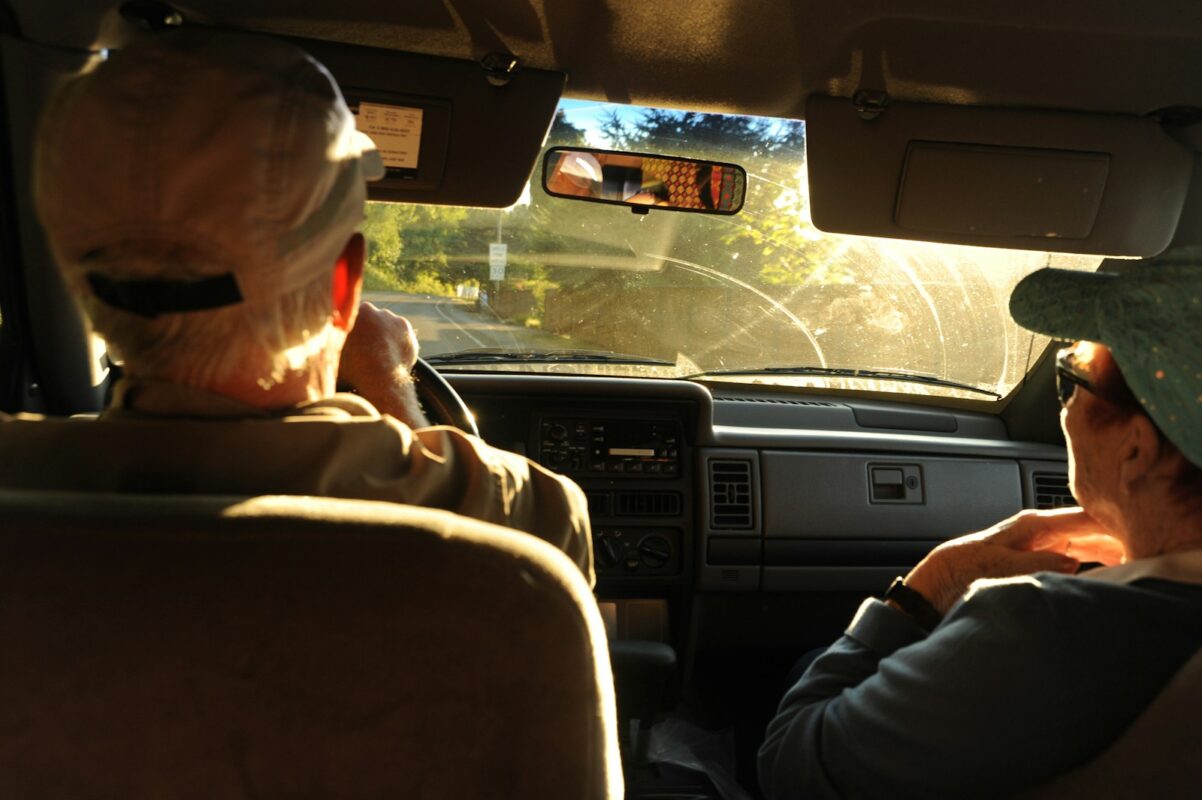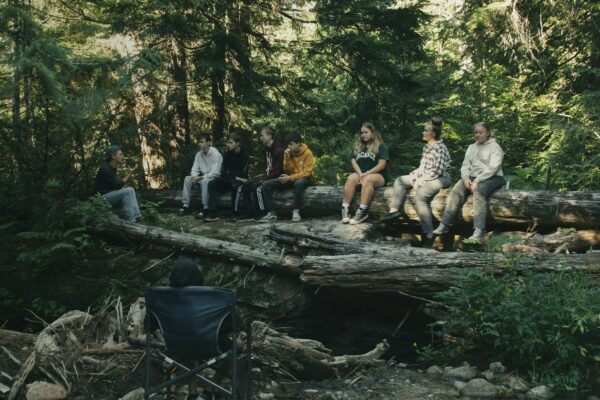Addiction is often referred to as a family disease—and for good reason. When one person struggles with substance use, the entire family is impacted. The emotional, financial, and relational toll of addiction can fracture even the strongest bonds. But here’s the powerful truth: just as addiction can tear families apart, recovery can bring them back together. We are here to help you or your family member find reliable drug rehab centers in Eugene Oregon.
At 503 Rehab, we believe that healing is most effective when it includes not just the individual—but the entire family unit. As one of the top-rated drug rehab centers in Eugene Oregon, we’ve seen firsthand how meaningful, informed family involvement can make a significant difference in long-term recovery.
In this article, we’ll explore how family dynamics influence addiction, why family support matters in treatment, the specific ways family involvement is encouraged at 503 Rehab, and how to rebuild trust and communication throughout the recovery journey.
Understanding the Role of Family in Addiction
Before we dive into the positive impacts of family involvement, it’s essential to understand how addiction affects families—and how family systems can influence addiction itself.
1. Addiction Is a Family Disease
Addiction doesn’t occur in a vacuum. It often stems from a combination of environmental, psychological, genetic, and social factors. Family systems can play a role in both the development and the perpetuation of addiction:
-
Enabling behaviors (e.g., covering up consequences, providing money, denying substance use)
-
Codependency (when a family member loses their own identity while trying to care for the person with addiction)
-
Unresolved trauma or dysfunction within the household
-
Learned behavior, especially when children grow up witnessing substance use
This isn’t to place blame—it’s to offer context. The goal is not to shame families, but to empower them to be part of the solution.
Why Family Support Matters in Rehab
1. Encouragement Through the Hardest Moments
Starting treatment is a vulnerable and often frightening step. Many clients feel ashamed, hopeless, or unsure if they can recover. Having supportive family members—even if relationships are strained—can offer much-needed emotional strength during detox, therapy, and early recovery.
2. Improved Treatment Retention and Outcomes
Studies have shown that individuals whose families are engaged in the rehab process are more likely to:
-
Complete treatment successfully
-
Stay in treatment longer
-
Transition smoothly into aftercare
-
Maintain long-term sobriety
This is why at drug rehab centers in Eugene Oregon, including 503 Rehab, family engagement isn’t just encouraged—it’s considered a key component of the recovery model.
3. Healing the Family System
Addiction causes rifts. Broken trust, emotional exhaustion, financial strain, and communication breakdowns are all common. Including family in treatment allows space for mutual healing—not just for the person in recovery, but for the family as a whole.
Family Involvement at 503 Rehab: What to Expect
At 503 Rehab, our programs are designed to incorporate family involvement in every stage of care. We know that every family is different, which is why our approach is flexible, personalized, and always centered on empathy.
1. Family Education Programs
Many loved ones come to us feeling lost, confused, or overwhelmed. They’ve often tried everything they can think of—yet nothing has seemed to help. That’s where education becomes powerful.
Our family education workshops cover:
-
The science of addiction and how it affects the brain
-
The role of trauma, mental health, and co-occurring disorders
-
Setting healthy boundaries
-
Understanding enabling and codependency
-
Communication strategies that support recovery
-
Navigating relapse risks and triggers
These sessions help families shift from crisis mode to informed, empowered supporters.
2. Family Therapy
Rebuilding trust takes time—and support. At our drug rehab center in Eugene Oregon, family therapy is a cornerstone of treatment. These sessions provide a safe, guided space for:
-
Addressing past conflicts or trauma
-
Improving communication skills
-
Rebuilding honesty and emotional safety
-
Reestablishing boundaries
-
Setting expectations for post-rehab life
Family therapy is typically facilitated by a licensed marriage and family therapist (LMFT) or a clinical counselor trained in addiction dynamics. Sessions can be in person or virtual depending on the family’s location and needs.
3. Involving Family in Treatment Planning
When appropriate and with the client’s consent, families are included in the creation of the treatment plan. This allows everyone to be on the same page and sets clear goals for progress, family interaction, and aftercare planning.
Overcoming Challenges in Family Involvement
We recognize that not all families are ready or able to engage in the recovery process right away. Some may feel angry, betrayed, or unsure how to re-enter their loved one’s life. Others may be dealing with their own mental health or substance use issues.
At 503 Rehab, we meet families where they are and offer support for their healing journey, too.
Common Family Concerns We Address:
-
“I love them, but I don’t trust them.”
-
“I’m afraid of being hurt again.”
-
“I don’t know what to say or how to act around them.”
-
“I’ve tried helping before and nothing worked.”
-
“Our whole family is still walking on eggshells.”
These emotions are valid—and they don’t disqualify families from being part of recovery. In fact, processing these feelings in a therapeutic setting is one of the first steps toward change.
Family Support During Each Stage of Rehab
1. Detox and Early Recovery
Family involvement may be limited during detox, as clients need time to stabilize physically and emotionally. However, early communication, even a simple letter or message of encouragement, can make a huge difference.
Our team will guide family members on how to support their loved one during this time—without enabling or interfering with clinical care.
2. Inpatient or Residential Treatment
During inpatient care, family therapy becomes a vital part of the weekly schedule. Visits, phone calls, or video sessions are scheduled with intention, balancing emotional support with the client’s focus on healing.
Family education continues during this phase as well, ensuring loved ones understand what to expect and how to support their loved one’s sobriety.
3. Outpatient and Aftercare
As clients transition into outpatient care or sober living, family involvement continues. In this phase, families may help support:
-
Daily structure
-
Transportation
-
Accountability in aftercare goals
-
Encouraging participation in 12-step or peer support groups
-
Healthy boundaries regarding substance use and behaviors at home
We also offer ongoing family counseling and alumni services so that healing doesn’t stop when the formal program ends.
The Benefits of Family Support in Recovery
When families are engaged in the recovery process, everyone benefits. Here’s how:
1. Improved Communication
Family therapy and education teach new ways of communicating without blame, guilt, or manipulation. These skills reduce conflict and build deeper connection.
2. Stronger Emotional Support System
Clients feel more motivated and secure when they know their family understands the recovery process. This can decrease the likelihood of relapse and improve mental health.
3. Less Isolation and Shame
Addiction thrives in isolation. Recovery thrives in connection. When families stay involved, the stigma and secrecy surrounding addiction begin to dissolve.
4. Increased Accountability
A supportive family is also an accountability network. Knowing loved ones are involved encourages clients to stay on track and make healthy choices.
5. Healing Generational Patterns
When families heal together, they break cycles of addiction, dysfunction, and trauma that can stretch back generations. This not only supports the current client—it protects future generations as well.
Family Recovery: Healing for Everyone
At 503 Rehab, we often remind clients and their families: you’re not just recovering from addiction—you’re recovering from the damage addiction caused.
That’s why we offer support for families, too. Through our workshops, therapy, and support groups, we help family members:
-
Reclaim their own emotional health
-
Build self-care routines
-
Set and maintain healthy boundaries
-
Let go of guilt, shame, and fear
-
Reconnect with joy and purpose
This is family recovery—and it’s just as important as the individual’s recovery journey.
Why Choose 503 Rehab Among Drug Rehab Centers in Eugene Oregon
We know you have options when searching for drug rehab centers in Eugene Oregon, but here’s why families and individuals trust 503 Rehab:
Compassionate, Evidence-Based Care
Our team uses the most effective therapeutic approaches—including cognitive-behavioral therapy (CBT), dialectical behavior therapy (DBT), trauma-informed care, and motivational interviewing—combined with holistic services for mind-body healing.
Family-First Philosophy
We don’t treat addiction in isolation. We know the value of family and incorporate it into every phase of treatment.
Full Continuum of Care
From detox and residential care to outpatient programs and aftercare, we offer a full spectrum of services under one roof.
Dual Diagnosis Expertise
Many clients suffer from both addiction and mental health conditions. Our dual diagnosis approach treats both simultaneously for better outcomes.
Trusted by the Community
As one of the most respected drug rehab centers in Eugene Oregon, 503 Rehab has built a reputation for results, integrity, and compassionate care.
Final Thoughts: You’re Not Alone
If your family has been torn apart by addiction, you are not alone—and you don’t have to heal alone.
Recovery is possible. Families can reconnect. Trust can be rebuilt. And healing can happen when everyone commits to growth—together.
At 503 Rehab, we are here to walk that journey with you. Whether you’re just beginning or have tried before, it’s never too late to start again.
Ready to Take the First Step?
Contact 503 Rehab today to learn more about our family programs, treatment options, and how our drug rehab center in Eugene Oregon can help you or your loved one start the journey toward recovery.
📞 Call us now at (971) 458-1567 to schedule a confidential assessment.
Let today be the first step toward healing—together.







